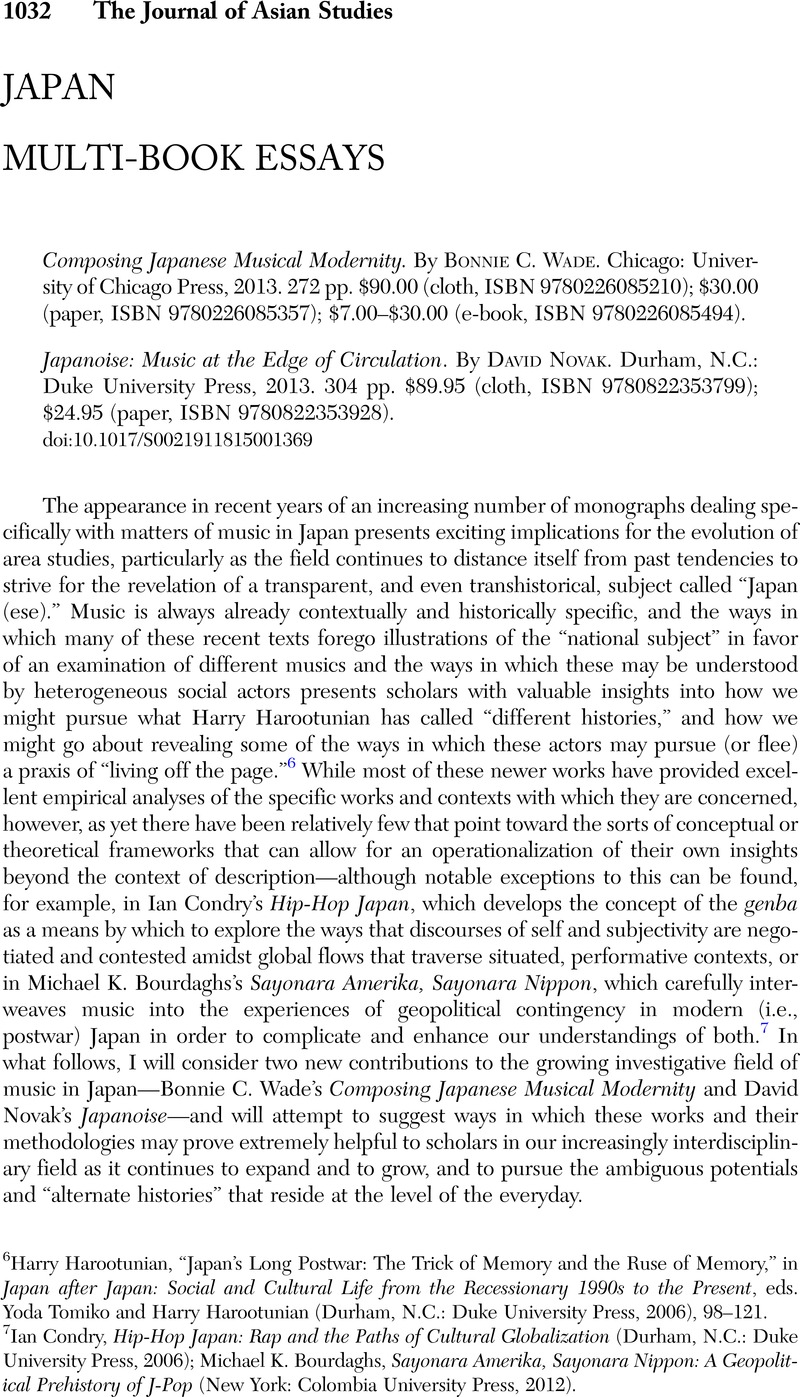No CrossRef data available.
Published online by Cambridge University Press: 09 December 2015

6 Harry Harootunian, “Japan's Long Postwar: The Trick of Memory and the Ruse of Memory,” in Japan after Japan: Social and Cultural Life from the Recessionary 1990s to the Present, eds. Yoda Tomiko and Harry Harootunian (Durham, N.C.: Duke University Press, 2006), 98–121.
7 Ian Condry, Hip-Hop Japan: Rap and the Paths of Cultural Globalization (Durham, N.C.: Duke University Press, 2006); Michael K. Bourdaghs, Sayonara Amerika, Sayonara Nippon: A Geopolitical Prehistory of J-Pop (New York: Colombia University Press, 2012).
8 Tia Denora, After Adorno: Rethinking Music Sociology (Cambridge: Cambridge University Press, 2003).
9 Paul Gilroy, The Black Atlantic: Modernity and Double-Consciousness (London: Verso, 1993), 101.
10 Lawrence Grossberg, Dancing in Spite of Myself: Essays on Popular Culture (Durham, N.C.: Duke University Press, 1997), 44.
11 The work's emphasis on opacity, in fact, put me in mind of Naoki Sakai's groundbreaking work, Voices of the Past: The Status of Language in Eighteenth-Century Japanese Discourse (Ithaca, N.Y.: Cornell University Press, 1992).
12 Harry Harootunian, “‘Memories of Underdevelopment’ after Area Studies,” Positions: East Asia Cultures Critique 20, no. 1 (2012): 7.